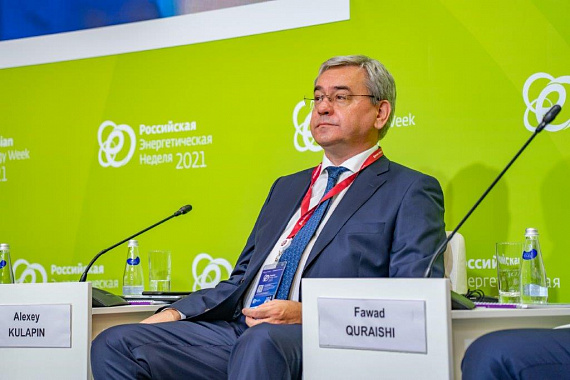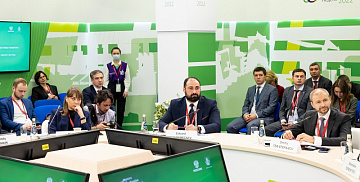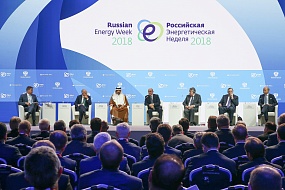Russian Energy Agency: Partner of REW 2021

The
Russian Energy Agency (REA) of the Russian Ministry of Energy has become a
business programme partner of the Russian Energy Week International Forum,
which kicked off today with representatives of key fuel and energy companies
and the government authorities of Russia and other countries in attendance.
The
key event of the programme for the REA’s participation on the first day of the
Forum was the session ‘The Impact of Europe’s Green Pivot on Russian-European
Cooperation in Energy’, at which REA General Director Alexey Kulapin made a
presentation on the development of the Russian fuel and energy industry in the
era of global decarbonization.
Kulapin
noted that the green pivot that the European Union adopted in 2019, which aims
to combat climate change and achieve carbon neutrality in the macro-region by
2050, poses urgent challenges to the Russian energy sector to adapt to the
energy transition. Since Russia and the EU are long-standing trading partners,
the new climate policy, and specifically the introduction of cross-border
carbon regulation, may pose a challenge to the Russian fuel and energy industry
and could also lead increased production costs and, in turn, intensified competition
on European markets.
The
absence of a system to record the carbon footprint in Russia today poses
additional risks for Russian exporters. The development of a national system of
carbon regulation that is harmonized with world standards will help offset
these risks.
“The
Russian government has adopted a number of regulations that aim to create a
system for verifying the carbon footprint of companies’ products. This will
make it possible to save funds in the budget of the Russian Federation that
could be sent to the European Union as tax revenue. The REA of the Russian Ministry
of Energy can become one of the verification centres. Work is already underway
to obtain the status of a verifier in the national system,” Kulapin said,
stressing that the REA is ready to discuss this topic with its Western
partners.
Kulapin
said the creation of a Russian verification system would increase the
recognition of Russian indicators for actual emissions by the international
community as a whole and by foreign investors in particular. Having carbon
regulation standards in the country would give Russian companies the
opportunity to attain higher positions in ESG ratings, which in turn would allow
them to attract financing at lower rates.
The discussion
of low-carbon energy development with the REA continued at business events
attended by Deputy General Director and Head of the Analytical Centre for the
Fuel and Energy Industry Denis Deryushkin and Deputy General Director and Head
of the Competence Centre for the Technological Development of the Fuel and
Energy Industry Oleg Zhdaneyev. These events included discussions on the future
of the transport sector in the era of energy transition and the development of
hydrogen energy in Russia and around the world. These officials also
participated in panel sessions on cooperation between enterprises in the fuel
and energy industry and the military-industrial complex and on the new
challenges facing the chemical industry.
Along
with the business programme, a number of agreements and memorandums were signed
on the sidelines of the Forum. The REA was one of the parties to these
signings. The REA’s new partners are the German Energy Agency (DENA), Moscow
State Institute of International Relations (MGIMO) of the Russian Ministry of
Foreign Affairs, the Analytical Credit Rating Agency (ACRA), KPMG, and the ESG
Consulting Agency.
The Russian Energy Week
International Forum is being held in Moscow on 13–15 October. It was organized
by the Roscongress Foundation, the Russian Ministry of Energy, and the Moscow
Government.





